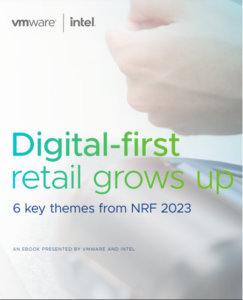
Introduction
In the digital age, social media has become an integral part of our daily lives, revolutionizing the way we communicate, share information, and conduct business. However, amidst the convenience and connectivity that social media platforms offer, there looms the potential for disruptions known as social media blackouts.
Causes of Social Media Blackouts
Technical Glitches and Malfunctions
One of the primary causes of social media blackouts is technical glitches and malfunctions within the infrastructure of the platforms themselves. These issues can arise due to software bugs, server failures, or network outages, leading to widespread service interruptions.
Cyberattacks and Hacking
Another significant threat to the stability of social media platforms is cyberattacks and hacking attempts. Malicious actors may target these platforms with Distributed Denial of Service (DDoS) attacks, data breaches, or other forms of cyber warfare, resulting in temporary shutdowns to mitigate the damage.
Government Regulations and Censorship
In certain regions, governments exert control over the internet and social media platforms through regulations and censorship measures. This can include blocking access to specific websites or platforms altogether, effectively enforcing a social media blackout within their jurisdiction.
Impact on Individuals and Businesses
Disruption of Communication
During a social media blackout, individuals may experience disruptions in their ability to communicate with friends, family, and colleagues. This can impede the flow of information and hinder emergency communication efforts during critical situations.
Loss of Revenue for Businesses
For businesses that rely heavily on social media for marketing, customer engagement, and sales, a blackout can have devastating financial consequences. The inability to reach their target audience or conduct transactions online can result in significant revenue losses.
Psychological Effects on Users
Social media blackouts can also have psychological effects on users, particularly those who are accustomed to constant connectivity and engagement on these platforms. Feelings of isolation, anxiety, and withdrawal symptoms may arise during periods of prolonged blackout.
Examples of Notable Social Media Blackouts
Facebook Outage of 2021
In October 2021, Facebook experienced one of the longest and most widespread outages in its history, affecting billions of users worldwide. The outage, which also impacted Instagram and WhatsApp, was attributed to internal technical issues.
WhatsApp Outage of 2019
In May 2019, WhatsApp, a popular messaging app owned by Facebook, suffered a global outage that lasted for several hours. Users reported being unable to send or receive messages, causing widespread frustration and disruption.
China’s Great Firewall
China’s stringent internet censorship laws, often referred to as the “Great Firewall,” routinely block access to foreign social media platforms such as Facebook, Twitter, and Instagram. This effectively creates a perpetual social media blackout for Chinese citizens unless they use VPNs to bypass the restrictions.
Response Strategies During a Social Media Blackout
Alternative Communication Channels
During a blackout, individuals and businesses can turn to alternative communication channels such as email, phone calls, or instant messaging apps that may not be affected by the outage.
Utilizing Traditional Media Outlets
In the absence of social media, traditional media outlets such as television, radio, and newspapers can serve as valuable communication platforms to reach a broader audience.
Implementing Crisis Communication Plans
Businesses should have robust crisis communication plans in place to effectively manage and mitigate the impact of social media blackouts on their operations and reputation.
Long-term Implications and Solutions
Strengthening Cybersecurity Measures
To prevent future social media blackouts caused by cyberattacks, platforms must invest in robust cybersecurity measures, including encryption, intrusion detection systems, and regular security audits.
Diversification of Social Media Platforms
Both individuals and businesses should diversify their presence across multiple platforms to mitigate the impact of blackouts on their communication and marketing efforts.
Advocating for Internet Freedom
Governments and advocacy groups should continue to advocate for internet freedom and resist efforts to censor or restrict access to these platforms, ensuring that users can freely express themselves online.
Conclusion
In conclusion, blackouts can have far-reaching implications for individuals, businesses, and society at large. By understanding the causes, impacts, and response strategies associated with these disruptions, we can better prepare for and mitigate their effects on our digital lives.
For more tech content like this VisitIT and Tech:https://www.info-tech.online/
BANKING, ACCOUNTING, INSURANCE AND FINANCIAL SERVICES:https://www.finance-tech.online/
HEALTHCARE AND PHARMACEUTICALS:https://www.healthcare-tech.online/
TRANSPORTATION AND LOGISTICS:https://www.transport-tech.online/
ENTERTAINMENT, TRAVEL AND HOSPITALITY:https://www.entertainment-tech.online/
MARKETING, ADVERTISING AND PUBLIC RELATIONS:https://www.channel-tech.online/
HUMAN RESOURCES COMPENSATION AND BENEFITS:https://www.humanresources-tech.online/
MECHANICAL AND CIVIL ENGINEERING:https://www.engineering-tech.online/
MANUFACTURING AND CONSTRUCTION:https://www.manufact-tech.online/
NON-PROFIT AND NON-GOVERNMENT ORGANIZATIONS:https://www.nonprofit-tech.online/
Want to promote your content?
Visit:https://www.exellius.com/contact-us/ orhttps://www.mediamartech.com/contact-us/c







